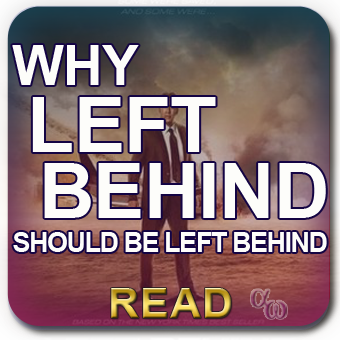
by Andrew Corbett | Apr 21, 2017 | Eschatology |
For LEFT BEHIND to be true it has to invent it’s own set of rules for Bible interpretation. What most LEFT BEHIND fans may be shocked to discover is that the pivotal sections of Matthew and Revelation upon which LEFT BEHIND is based was fulfilled by 70AD! And it had to be since that’s what Christ said!
“Assuredly, I say to you, this generation will by no means pass away till all these things take place.”
Matthew 24:34 (NKJV)
The highly aclaimed atheist, Bertrand Russell, said this verse alone was enough to discredit both the Bible and Jesus Christ!

by Andrew Corbett | Mar 18, 2017 | Book of Revelation |
It is absurd for Futurists to claim that “even those who pierced Him” refers to modern Israel. Futurists pride themselves for being “literalists” when it comes to interpretting the Book of Revelation. But which interpretation of Revelation 1:7 is more literal? I am proposing the most literal interpretation of this verse by saying that when the text says “even those who pierced Him” that is precisely what it means. “Every eye shall see” refers to the qualifying statement identifying this audience as the people responsible for Christ’s death. Again, when Futurists claim that this text prophesies the invention of satellite TV which will televise the return of Christ live around the world, they can barely warrant their appeal as literalists!
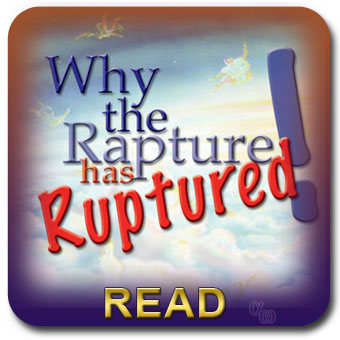
by Andrew Corbett | May 4, 2016 | Bible Prophecy |
Many believers have come to believe in a ‘rapture’ and that it is prophesied in the Bible without realising that it is only a fairly recent idea! When we look at the teaching of some of these Bible-Prophecy preachers it soon becomes apparent that the Bible does not teach a rapture!

by Andrew Corbett | Feb 22, 2016 | Bible Prophecy |
“It was the best of times, it was the worst of times.” begins the Dickens’ classic, The Tale of Two Cities. For many End-Times preachers, these are the worst of times. This idea is reinforced repeatedly by many Christians who feel that the world is indeed getting worse and worse. When I have lectured on Ethics or Eschatology both here and abroad, I have been challenged by students who despair that Christians can not hope to have a godly influence on society since the Bible apparently says that the last days will be dark and full of rampant evil. I have generally responded to these claims by asking if there was another time in history in which they would rather have lived? When students think about it, they usually conclude that there is no better time to be alive than now. But this presents a dilemma for those Christians who have bought into the idea that these are the “worst of times”, because the evidence suggests that these are the best of times.
I’m a Preterist. I’m not a Futurist. This means that I consider the Bible needs to read and understood as it was intended. I consider this to be taking the Bible “literally”. This kind of literalism distinguishs between a metaphor, an allegory, poetic parallelism, narrative, and didactic prescriptions. I therefore regard Christ’s statements about His coming and the Kingdom of God being “near” and “at hand” as being intended to convey the idea that His coming and the Kingdom of God on earth was about to commence within the life-time of Christ’s original audience.

by Andrew Corbett | Oct 5, 2015 | Bible Prophecy, Eschatology |
Who is the man identified in The Book of Revelation with the number, “666”? This article sheds light on this controversial question. I grew up in a church where regular Bible-prophecy teachers hinted that they knew the identity of the coming ‘Antichrist’. This man, was, according to these teachers, also referred to in Scripture as “the Beast” and “the man of lawlessness”. It wasn’t until I started to realise that these teachers were not only guessing about this Antichrist, but pretty much everything else they taught was a guess as well, that I began to understand what the Bible really says about these things.
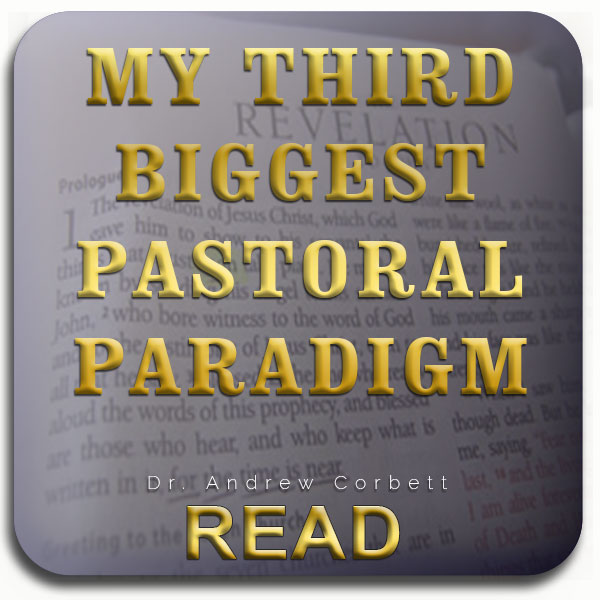
by Andrew Corbett | Sep 25, 2015 | Eschatology, Theology |
As I reflected on my recent 20th pastoral anniversary of Legana Christian Church in 2015, I’ve had cause to reflect on three of my most significant pastoral paradigm shifts. I think I was about 17 years of age when I approached my then pastor, Joseph Bowes, to talk about the growing sense of God’s call on my life to pastor. I had assumed that all young men about that age felt a similar call. Pastor Bowes informed me that this was not the case. It was around this time in the 1980s that I first met Pastor Trevor Chandler who had become an annual visitor to our Geelong church (as he came down from Queensland to Victoria for INTERMIN). But this time (the 1980s) was a bizarre time for Bible Prophecy pundits. It was Trevor Chandler who first sowed the seeds into my soul to investigate rather than blindly accept Dispensational Futurism (which was the predominant view in most Evangelical and Pentecostal churches at the time). And I did.
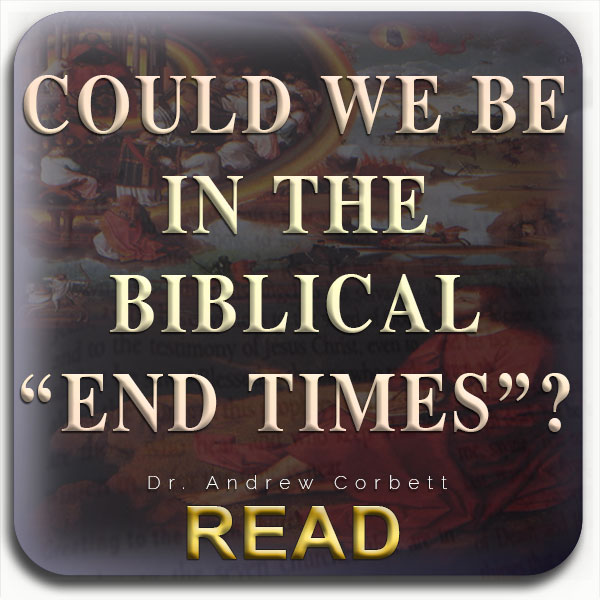
by Andrew Corbett | Apr 26, 2013 | Bible Prophecy, Book of Revelation, Eschatology |
Wars, earthquakes, floods, and famines have long been considered the traits of what many believe to be the Biblical description of the “end times”. Added to this is what many understand to be the predictions of increased apostasy, the rise in persecution, the deterioration of society’s morals, and the increased compromise and lukewarmness of the Church. And surely, if these are the characteristics of what the Bible describes as the last days, we must be in the last days, right? But are we? And if we are, so what? And if we aren’t, then what? But are we in what the Bible describes as the ‘end times’?
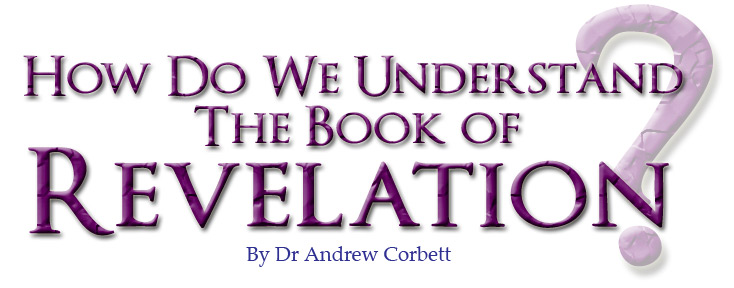
by Andrew Corbett | Feb 8, 2011 | Book of Revelation |
We all approach the Bible with certain ideas that color the way we read it. This is especially the case with the Book of Revelation. While certain parts of the Bible are difficult to understand (largely because we are separated by time, distance, language, personal disconnection and cultural practices), the Book of Revelation is particularly difficult to understand. This is borne out by the plethora of interpretations that have been offered about it.









